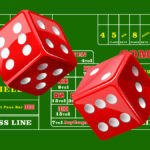The concept of a “market” exists all around us. Nearly every good or service, from housing to produce, has its own prices that change fluidly based on supply, demand, and a number of other factors.
In addition to more conventional markets, sports betting has its very own market as well. Because there isn’t necessarily an exchange of goods when it comes to sports betting, understanding how it works can require a little more insight.
So, in this article, I’ll explain what the betting market is, how its prices get set, whether or not the market is efficient, and if it can help you become a more successful bettor.
1 – What Is It?
You’re probably familiar with the idea of the “housing market,” you’re unquestionably familiar with the “stock market,” so understanding the betting market means applying the same rules to gambling as are applied to these more traditional industries.
When you go to place a bet on a sporting event, it might not like feel like a transaction, as you aren’t walking away with anything. However, you are purchasing a chance to win money by accurately predicting what the future holds. If you think this sounds exactly like the philosophy that investors take when buying and selling stocks, then you’re absolutely right.
It’s important to recognize that although you pay the sportsbook when you lose, you’re not actually going against them from a financial perspective. The betting system is designed so that losing money takes care of paying out winners and the house keeps the vig (or juice).
For Example:
If three people bet $100 on the Patriots at -3 (-110) and three people bet $100 on their opponent the Dolphins at +3 (-110), a total of $600 is “in the market.” If the Patriots cover, those who bet on them will win back 90% of the initial bet (due to the -110), meaning each bettor wins $90.91. Obviously, the Dolphins bettors lose all of their $100.
In the example above, out of that $600 that was initially in the market, the sportsbook will end up keeping roughly $28. That might not seem like a significant percentage or overall amount of money, but it’s important to remember that the cost to the sportsbook is almost nothing to facilitate the transaction.
What I’ve explained is how betting markets work in an ideal situation from the sportsbook’s perspective. If there is too much money on one side or the other, not 50% of the money on each team, the sportsbook has a much higher risk of losing money.
Sure, any casino or sportsbook would love to see 80% of the action on a certain game go toward the team that fails to cover, but when the money is unevenly distributed, risk increases significantly. Having roughly half the money on either side is fully sustainable, whereas unevenly distributed action creates the potential for volatility.
In the end, bettors should know that they aren’t trying to beat the house. If there is an opponent, it’s simply those bettors who are on the other side of your bets.
2 – Betting Markets vs. Oddsmakers
If you’re “in the game,” so to speak, it’s likely that you’re regularly exposed to the terms “oddsmakers.” While most are familiar with the term, it’s often used incorrectly.
The eventual numbers regarding spreads or moneylines (a.k.a. “the odds”) typically aren’t those that oddsmakers have come up with in the first place. Essentially, oddsmakers can be looked at as the people who put together what’s often referred to as the “opening lines,” but then the betting markets take over.
Once a sportsbook pushes out its opening odds and money starts coming in, the line movement that will inevitably occur is now determined by the “betting markets.” If you’re surprised about the opening odds, your surprise should be directed toward the oddsmakers. If you’re surprised about the closing odds, you might question the betting markets.
Now, if you’re a bettor, there is much information to be gained by observing this movement of the odds, especially if you’re able to see what’s causing it.
For example, if oddsmakers put out an initial spread of Patriots (-5) on Tuesday and by Sunday, it’s all the way up to (-8), what does that mean? If you’re following, it would suggest that the public was putting so much money on the Patriots that the sportsbook needed to make the bet less attractive to get money on the other side of the bet.
To continue on with the example above, it’s widely believed within the world of sports betting that it’s usually a good idea to stay away from a bet that matches up with the majority of public money. You’ve likely heard or come across the term “fade the public” once or twice before. While it’s certainly not scientifically-proven to be the right play in all cases, the evidence is hard to ignore; going the opposite direction than the public is typically advisable.
The bottom line is that although they are occasionally used interchangeably (incorrectly so), odds makers and sportsbooks serve different functions. The job of the former is to simply come up with what they think are the most accurate odds for a particular game, while the job of the latter is to adjust them in such a way that allows the sportsbook to make a profit off the vig.
3 – Betting Market Efficiency
If this is starting to sound somewhat like your ECON 101 class in college, think of it instead as proof that some of that information was relevant after all.
When it comes to the question of whether or not the sports betting market is efficient or liquid, there are a number of factors to take into consideration.
Efficiency within a market, to sum it up as succinctly as possible, refers to the degree in which the prices in the market are an accurate reflection of all the data. An efficient market leaves no holes to get an edge by finding value where it’s being ignored.
In sports betting, the more action a game receives, the more efficient it will be. The NFL is a prime example of this.
It’s common knowledge among sports bettors that if you want to gain an edge, the NFL is not the place to do it. Because its market is so efficient, by far the most efficient of the major professional sports, there’s no such thing as an easy win.
Simply put, an efficient betting market is fair, but also means a difficult environment to try to make a profit. In contrast to the NFL, mid-major college basketball, group of five conferences in college football, and other events that receive far less action are going to present opportunities to take advantage of the market inefficiency that exists due to the overall lack of action.
4 – Does Any of This Help?
Understanding how betting markets work is great, but can it actually help your performance as a sports gambler? The answer isn’t necessarily “yes” or “no.”
When it comes to anything related to gambling—whether it’s at a sportsbook, casino, or elsewhere—everyone is looking to get an edge in any way possible. Perhaps the question to ask is,
“Is there even an edge to be gained?”
Depending on what your bet is, the answer can be different. To go back to the example of the NFL, there might not be an edge to be gained when betting the spread on a prime time game, but if you look at prop bet offerings, less action, and thus market inefficiency, means you might be able to find an angle. That’s why prop bets are frequently only offered at -115 and lower.
When you consider the original question of whether or not understanding betting markets helps you win, my final verdict is that all information is good information. It might not help your Sunday football picks, but it will help you understand how the whole operation functions.
Conclusion
Whether or not you’re a financially-inclined individual or someone who shudders at the word economics, betting markets are a fascinating experiment of what happens when the market is almost truly free.
At its base level, betting markets are as close as anything to an efficient market, which is fascinating considering the back-room history of sports gambling. Even if this knowledge won’t help you win your next bet, you can at least educate your buddies on the basics.
Michael Stevens
Michael Stevens has been researching and writing topics involving the gambling industry for well over a decade now and is considered an expert on all things casino and sports betting. Michael has been writing for GamblingSites.org since early 2016. …





